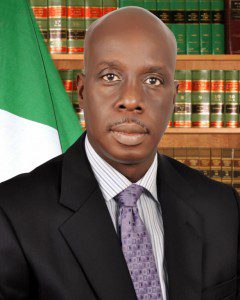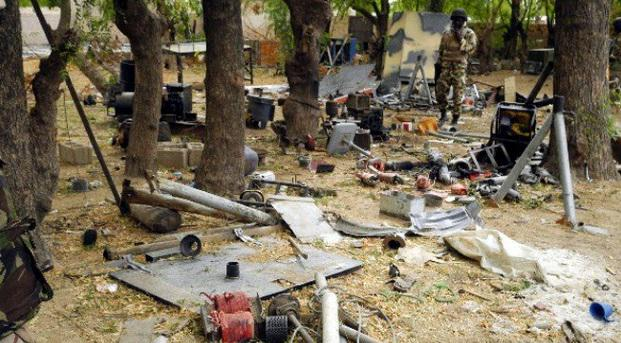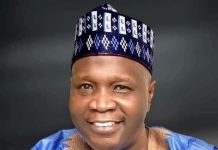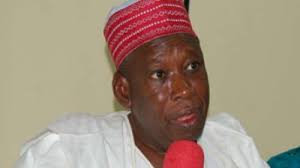By Lolu Onabule
It is not clear whether the Senate is bent on requiring the President to present himself for screening should he go ahead with his intention of assuming the role of the Minister of Petroleum or whether the ’threats’ are merely an innocuous prank by a few senators. Either way, it is my opinion that,
Firstly, the President, as the Chief Executive Officer of the country bears ultimate responsibility for the smooth and effective running of the government on a day-to-day basis and must accept the ultimate blame for any failures or shortcomings that may occur therein.
Secondly, there is nothing in the Constitution that says the President MUST appoint Ministers except for the Attorney General and Minister of Justice. The executive powers vested in the President, MAY be exercised by him DIRECTLY (by him) or indirectly through his vice and ministers (which he may or may not decide to appoint) of the government of the federation or through other officers in the public service of the federation. These powers extend to the execution and maintenance of the Constitution of Nigeria and all the valid laws made by the National Assembly. See section 5(1) of the Constitution.
Section 148(1) allows the President in his discretion, to assign to the Vice-President or any Minister of the Government of the Federation responsibility for any business of the Government of the Federation, including the administration of any department of government. Yes, Section 148(2) dictates that the president must meet regularly with the VP and ministers. This provision, some argue, makes it mandatory for the President to appoint ministers. I disagree. Where there are no ministers, the president will be well within his powers to hold meetings with only the VP and the Attorney General or if he deems fit, the Permanent Secretaries or whoever is delegated to oversee the affairs of the ministry.
Thirdly, since the President has decided to appoint Ministers, then certainly, the appointment must ORDINARILY be approved by the Senate. This rule will however NOT apply to the President or the Vice President should they decide to DIRECTLY oversee the affairs of any MDA. Every provisions of the Constitution and all other laws are made for a specific purpose. Sadly, our laws no matter how extensive cannot and will never be able to provide for every eventuality that will arise in the course of the affairs of men, organizations, communities and Nations. When a situation arises in which the law seems incomplete or inadequate, it is to the spirit of the existing laws that the courts resort to.
In the case of Section 147 of the 1999 Constitution, it seems the law does not envisage a situation where the President or Vice President proposes to run the affairs of a ministry or department. In furtherance of the oversight responsibilities of the National Assembly in Sections 88 and 89 of the Constitution, Section 147 hopes to ensure that the proper (in all ramifications) persons are put in place to run federal MDAs by requiring that such appointments be approved by the Senate. Note however, that the Senate has oversight functions over decisions of the President and the entire executive branch but not over decisions of the Nigerian people. Such decisions of the people override any and all powers of the National Assembly.
Nigerians have, based on the representations he made to them during campaign, decided to give the President the mandate to exercise ALL the executive powers of the federal government and to run the affairs of the country as he deems fit. This includes the running of every ministry, department, agency, commission or other federal institution. Now this is where the thin line lies. For as long as the President wishes to carry out those administrative functions directly/personally as he has been elected to do, the National assembly has no say whatsoever in the matter. Where, however, the President seeks to delegate his duties and powers to another individual whom the people have not assessed and approved of, then, the system kicks in and the National Assembly MUST screen, investigate and confirm such nominees ON BEHALF OF THE PEOPLE to ensure that the right persons are selected and to ensure that guidelines (such as sections 14(3) and 147(3) are strictly adhered to. Nigerians have already screened, investigated and confirmed Mr. President as fit for the job. The National Assembly has no powers to review this crucial decision of the Nigerian People!
Apart from matters regarding declaration of war, the signing of treaties, budgets proposals, key appointments and a few other similar instances, Mr. President is generally empowered to ‘do and undo’ as he pleases so long as he keeps within the confines of the law.
We ought not to overlook that fact that all ministers report to the President. They exist merely to assist the president in running the government, help in formulation of policy and in the rendering of advice on issues which advice the President may or may not accept. The President ultimately takes final major decisions regarding all Ministries. In effect, he actually runs and oversees the affairs of ALL the Ministries. He is therefore the number one Minister or the Supra-Minister for the Nation. The Senate ought to have screened the president long ago rather than wait till he assumes duties as the Minister of Petroleum.
Section 138 prevents Mr. President from holding another executive office while in office as the President. Is the office of the Minister an executive office? No doubt it is. Does that mean Mr. President cannot oversee the affairs of the Ministry of petroleum? Not at all, he sure can. The important thing is that he should (must?) not earn salaries and allowances from both offices at the same time. To satisfy all righteousness, maybe he should refrain from referring to himself as ‘ Minister’ while all policy decisions are taken, directives issued and papers signed as ‘the President of the Federal Republic of Nigeria regarding the affairs of the petroleum industry.
Nothing says that the Petroleum Ministry must have a minister, yes, despite the fact that it is called a ministry. If push comes to shove, it is the prerogative of the President to withdraw the term ministry and to transfer all the affairs of the Petroleum industry to an office under the presidency or he may retain the Ministry and allow the Permanent Secretary to run it while reporting to the president directly.
As for the possibility of the President being ‘invited’ to the National Assembly to answer queries regarding the affairs of the petroleum industry, I fail to see what is so strange about that. Section 67 empowers the National Assembly to invite a minister to explain matters concerning his or her ministry. The Section also allows the President to attend at will sittings of either house of the National assembly to deliver an address on national affairs including fiscal measures, or to make such statement on the policy of government as he considers being of national importance.
If Mr. President refrains from referring to himself as minister, will the National Assembly remain in a position to be able to invite him pursuant to Section 67? Having regard to Section 308, it is not clear whether Mr. President is included in the term ‘any person’ as contained in Section 89 (1) (c) which wmpowers the National Assembly to ‘…summon any person in Nigeria to give evidence at any place or produce any document or other thing in his possession or under his control, and examine him as a witness and require him to produce any document or other thing in his possession or under his control …’. Either way, it matters not really. It is great for the strengthening of democracy if, on occasion, whether invited or not and at least once a year, the president attends the National Assembly.
If invited to the National Assembly on a stated date for which his schedule does not permit, he may decide to send a representative. Of course, the National Assembly will do well to note that it will be foolhardy of them to ‘invite’ the President to attend before them as often as the itch arises.
Finally, it is my opinion that since Mr. President has decided to appoint Minsters, then he has no alternative than to appoint a minimum of 36 ministers, one from each state of the federation. This is not to say that he must appoint them all at once or that he must have 36 ministries or that every ministry must have a minister. Yes, a strict and maybe, mischievous interpretation of section 147 provides him leeway to appoint less that 36 minister at any point in time. However, a reading of section 147 in conjunction with section 14 and subsection 14(3) of the constitution in particular will reveal the true spirit and intent behind section 147(3) of the Constitution. It is all about balancing and integrity I believe. If Mr. President decides to run the Government with the present crop of nominees up until 6 months to the end of his tenure at which point he appoints another set of ministers to make 36, will he be said to have complied with section 147? I think so. Will he have imbibed the spirit of sections 147 and 14? Most certainly not.
Lolu Onabolu is an Abuja-based legal practitioner














